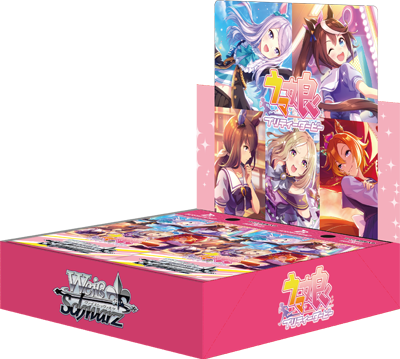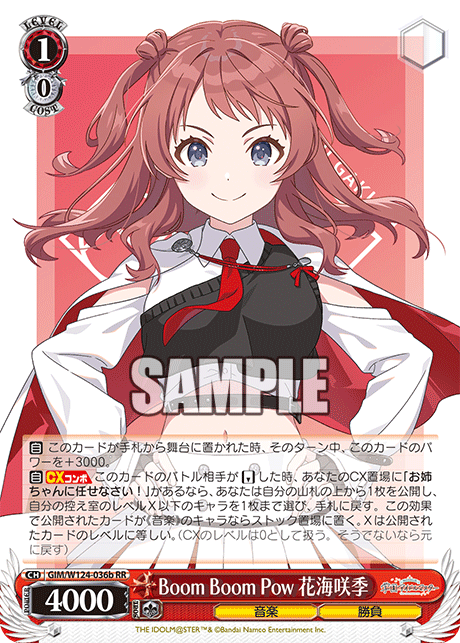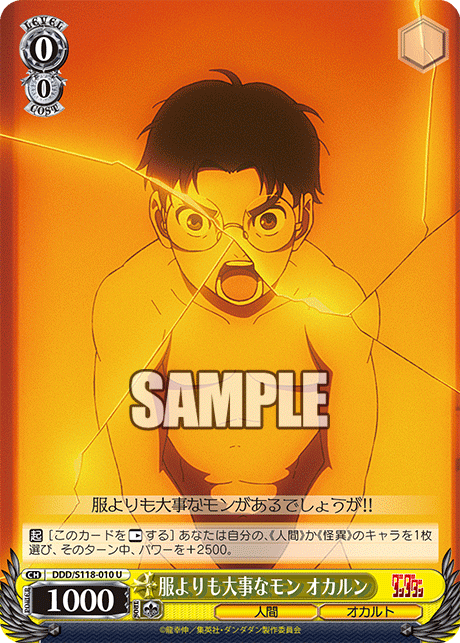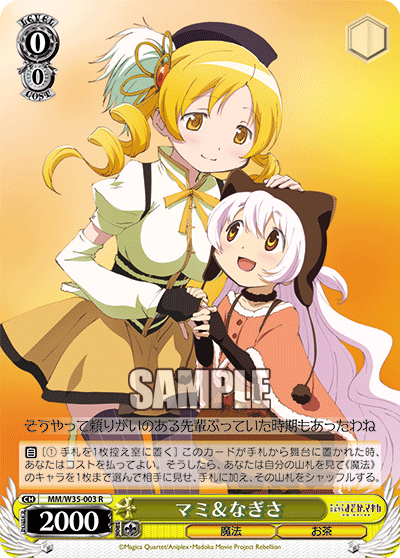For some people, it can be difficult to speak with others, but we all need to work together in order to grow our communities. In some cases, it’s like second nature for certain folks, but for others, it’s a nightmare and even after the simple pleasantries, they aren’t sure how exactly to approach new peeps.


Normally, when a new player arrives at the shop, assuming they weren’t brought by a friend, they will likely either be spotting something akin to a trial deck mixed with some cards from the booster or have nothing whatsoever. This is quite common, and from my personal experience, even when I started the game, this was how I personally entered my first experience at a card shop let alone playing the game.
People come from all walks of life, and for some, especially given that Weiss Schwarz has a special niche as an anime game, they may or may not have any experience in card games whatsoever. Even now when card games have become more popular due to online battlers and applications, there’s a good chance of meeting people who have never entered a card shop or even played at a single local tourney.
You have to realize that you may be their gateway into the game, and the experience that you share and provide may ultimately determine whether they leave or stay.



MKI/W126-084U ラッコ系ヒロイン? 杏菜 (center)
MKI/W126-030EX-RRR+ 食いしん坊幽霊のお悩み (right)
Step 1.) Meeting the New Player
So the new person sits down alone at the end of a table. No one is really approaching them. You decide to muster up the courage to get to know the person. After exchanging pleasantries such as simple greetings and asking about their day, you try to engage the new person with questions about the game. But you freeze and pause for a moment as you think of what to say first. What should you do in this situation?
Well, there’s no guaranteed perfect answer, but let’s go over what information you need to consider and convey to the new individual entering the game. Firstly, rather than just dive right into the game itself, you want to use a lead-in topic. This is generally quite easy in Weiss compared to most other hobbies in my humble opinion. The reason for this is that the card game itself already prints a visual that helps you lead people into the game: the anime series from which the cards are based upon.



OSK/S121-003RR 自分だけの色 ルビー (center)
DDD/S118-010U 服よりも大事なモン オカルン (right)
Look at your opponent’s cards and deck. Look at their supplies whether that be their playmat, their sleeves, or whatever else. If you notice or know about the series that they are vividly showing, maybe start a conversation about that. Think about some of the questions below:
- What’s your favourite anime series?
- What’s your favourite part of x or y series? What’s your favourite character or arc?
- How did you learn about this game?
- Where did you pick up your deck?
Listen closely to what they say and then try to respond along the same line of thought. If they ask you the same questions, answer them earnestly.
Step 2.) Introducing the Game
Perhaps the new player knows how to play the game, but chances are, and it wouldn’t exactly be rude, but if you ask and they are confused, just offer and go over the game rules.
Now when explaining the rules, you want to be clear and as basic as possible. Learning any card game is difficult enough as is. There’s no need to go over all the common profiles immediately or go over specific nuances and special situations. Telling a new player about Riki(s) are effectively pointless if the new player doesn’t even know how to play or even how basic cards interact or work on board.



MAR/S89-025C ムジョルニア (center)
SBY/W77-098R-RRR 複雑な心境 (right)
Start by explaining the various different types of cards: characters, events, and climaxes. Feel free to use visual examples. Follow this up with explaining the different areas on the board and how they work. If they prefer to read, feel free to use our site’s tools to help you. Be brief and simple. They don’t need to know immediately how certain mechanics like clock encore works and how it interacts with the last card in your deck before refreshing. Just go over the simple mechanics.
Step 3.) Interacting in a Game
Follow up with the teaching or introduction with a sample game. I would offer to play the first game open-handed, that way the new player can get a better visual over how cards work and learn about basic interactions.
Now you may be thinking: what deck should you use to play the new player? Well, contrary to popular opinion, your oldest deck is not the best choice. You don’t want to “dumb down” your deck to give your opponent a better chance. You want to play the opponent on equal footing. If you can, try to find a deck that is about the same power level as your opponent’s. It is for this reason that I personally carry so many different decks from various eras in case I do end up meeting any new players. No, this is not being rude. In fact, if you were to “dumb down” your deck, in some cases, you may make it seem as if you’re potentially mocking your opponent’s deck. You don’t want to drop the latest strongest hit either and dominate your opponent entirely. Everything is relative. You want to make sure that everyone has a good time and that your opponent is getting a learning experience rather than being hand-held or utterly destroyed. (You wouldn’t want to use max powered D;Cide against someone’s starting deck would you?)
In your first game, you’ll probably have to help with explaining more effects and interactions, but with each subsequent game, you should be giving more agency to your opponent, letting the new player make more of their own decisions.
Step 4.) Helping the New Player Design their Deck
Every player has their niche and specific wants, and deck building is where this game can be quite tricky. New players will more than likely come to realize that they may wish to edit their lists. If they are sporting a trial deck, after a few games, they may consider moving onto adding cards from a booster.
But how exactly do you work with these new players to help them build decks?


First and foremost, remember this golden rule: you are helping build a deck for them, not a deck for yourself. Your new player may have specific rules or certain wants, and if that is the case, abide by their rules. They may choose to play with their favourite waifu or by your own accounts: a not-so consistent or weaker deck. Who cares. This isn’t your deck; it is theirs.
Next, you’d like to help give them a resource that informs or gives them direction to options that they can take. Most players at this point would offer up some website or just refer their new players to EncoreDecks or similar deck-building websites. This is not a good behaviour to follow. Referring someone to a website or a deck-builder just to view decks essentially removes your role in guiding the new player. Many players I often see stop at this step and just leave the new player to their own whims.
You should be working side by side to assist the player and provide light advice as they make decisions. Even for a site like ours where we provide deck skeletons, you should be helping them navigate and understand the deck theory and then work around the general skeleton that we provide you to work with. And don’t simply refer them to certain profiles, explain how these profiles work, and then let these players decide on their own. You need to provide space for the new players to learn.
Step 5.) Growing the Community
Listen, it’s a tough world out there. And for many folks, entering the card shop can be jarring, confusing, and uncomfortable, especially if they don’t know anyone. You see the new person? Invite them out to the same shop next week. Maybe provide them other shops they can visit. Are you going out for dinner as a group? Think you can fit one more?
A Personal Anecdote
For myself, when I began in this community of mine, I felt a bit estranged. I didn’t know anyone nor was I person who would normally go out to such places to begin with. Looking back on it, I didn’t get the best of greetings either, but that doesn’t mean that my personal experience has to be applied to others. We can all work together to make the world just a slightly better place.
The final point I want to make as I close off this post is that it isn’t anyone’s direct responsibility to make sure that new players enter or stay in the community. It isn’t anyone’s sole responsibility, and yes, you don’t owe it to anyone either. But if everyone thinks this way, communities will continue to stagnate with time. Don’t really know what to do? Just be kind and think of how you yourself would want to be treated.
Think of it like this, no one owes you kindness, but it doesn’t cost you anything to give any out either. And at worst case, you’ll just make a new friend.